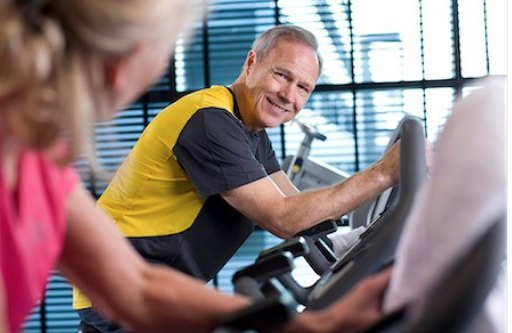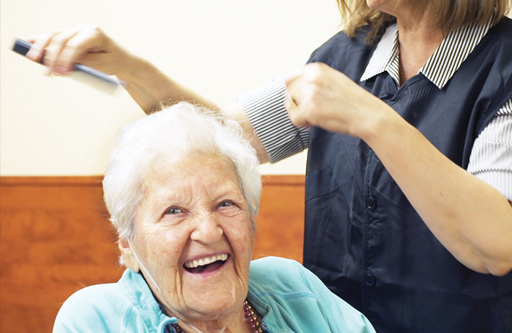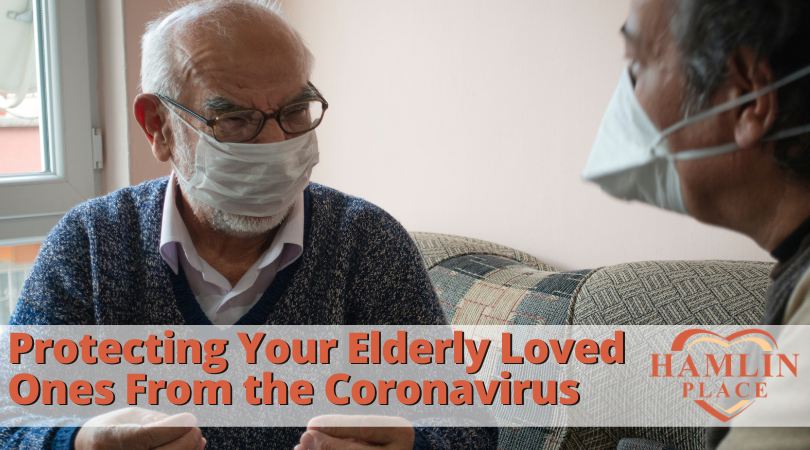
Protecting Your Elderly Loved Ones From the Coronavirus
The rapid emergence of COVID-19, or coronavirus, has left many people feeling vulnerable and uncertain about the future. The virus continues to spread across the United States, with nearly 750,000 cases reported thus far. Older adults have an even higher risk than the general public of contracting a serious case of coronavirus. According to the Centers for Disease Control (CDC), adults 65 years and older account for 31% of cases, 45% of hospitalizations, 53% of ICU admissions, and 80% of deaths.
Now more than ever, it’s vital that every caregiver understands how to best keep their loved one safe. We created this guide to help caregivers learn more about coronavirus and how to prevent its spread to keep themselves and their loved ones physically and mentally healthy. While coronavirus certainly needs to be taken very seriously, there is a lot of fear-mongering and misinformation gaining traction on the internet right now as everyone tries to best understand the current situation. In this guide, we cite credible, reliable sources to ensure that we have included the most accurate and practical information.
The Basics of Coronavirus
“Coronavirus” actually refers to a group of viruses, the coronaviruses. COVID-19, short for “coronavirus disease 2019,” however, is a “novel” coronavirus, meaning that it has not been previously identified in humans. In order to build immunity to a virus, humans need to first be exposed to it. This can either happen from getting sick with the virus or through a vaccine. But because coronavirus is new to humans and there is no vaccine for it yet, no one has any immunity. This makes it incredibly easy for coronavirus to rapidly spread and infect people.
How Coronavirus Spreads
The exact mechanism behind the spread of this coronavirus isn’t fully understood, though it is clear that it is rapidly spreading person-to-person, likely through droplets in the air that are released from coughing and sneezing. Experts also believe the virus can “live” for a long time on surfaces, and that someone can get coronavirus by touching an infected surface and then touching their face. All of these factors make “community spread” extremely easy.
Symptoms
According to the CDC, the coronavirus symptoms to look out for include fever, shortness of breath, and cough. Most people will experience these symptoms within 2-14 days of being exposed to the virus. Some people may have these symptoms and simply feel as though they have the typical flu. Others, particularly older adults and immunocompromised individuals, will have more severe symptoms. The CDC refers to advanced symptoms including difficulty breathing, persistent chest pain or pressure in the chest, bluish lips or face, and unusual confusion as “emergency warning signs” and recommends that anyone exhibiting these symptoms seek medical attention immediately.
Your physician will determine whether or not you need to be tested for COVID-19. However, the tests take time and may be in limited supply in some areas, so do not wait for a test result to seek medical care if you are exhibiting one of the emergency warning signs or have an underlying chronic medical condition.
How Caregivers Can Help Prevent the Spread of Coronavirus

One of the reasons that the public is being instructed to “socially distance” themselves is to protect those with weaker immune systems, like the elderly, from contracting the virus via community spread. However, if you care for an older loved one, it very well may not be possible to isolate yourself from them. Thus, it is extremely important that you as a caregiver do your best to protect yourself first. If you reduce your odds of being exposed to the virus, you reduce the odds of passing it on to your loved one or any other elderly or immunocompromised individual. The following tips are great for anyone, but are crucial for caregivers.
Avoid gatherings of more than 10 people
Because coronavirus is rapidly spreading through communities, having large groups together increases its chances of infecting more people. The CDC currently recommends keeping gatherings to ten people at maximum. However, if you’re a caregiver, it may be best to limit your exposure to groups even further. The more people you are around, the more chance you have of being exposed to the virus and passing it on to your loved one.
Note: Many states have ever evolving guidelines that may quickly become stricter or more permissive than the current CDC guidelines. Be sure to check with your local government on the specifics of those rules. However, as states start to open back up, keep in mind that caregivers need to be more careful than the general populace to avoid passing on the disease to their elderly loved ones.
Keep your hands clean
One of the CDC guidelines for preventing the spread of coronavirus is to keep your hands clean and sanitized. If you were unable to stock up on hand sanitizer before your store ran out, simply washing your hands vigorously with hand soap will work just as well. In fact, the CDC recommends soap and water as the primary way to clean your hands, with hand sanitizer as a backup in situations when soap and water are not readily available. In addition to keeping your hands clean, try to avoid touching your face.
Wear a face covering when in public places or providing direct care
The CDC recommends that everyone wear a cloth face covering when in public places, such as the grocery store. Since it’s very possible to have the coronavirus and without showing any symptoms or feeling ill, when in close contact with your elderly loved one, wearing a mask is also advisable. Additionally, wearing a cloth face covering in public is a good reminder not to touch your face.
Clean frequently touched surfaces daily
The CDC recommends that everyone clean and disinfect surfaces like tables, doorknobs, countertops, faucets, and sinks daily. Personal devices like cell phones and tablets should also be disinfected at least once per day. Most household disinfectant products are sufficient, but the CDC has instructions for other options for disinfectants such as diluting household bleach. Because it’s believed that coronavirus can live on surfaces, and does not only spread through the air, it’s essential that surfaces are disinfected regularly to help slow the spread. This step is even more crucial if an older person lives in your home or you bring your devices, like a cell phone, into their home.
Protecting the Elderly
The steps listed above are important for everyone to take, regardless of whether they’re a caregiver. If you are a caregiver, however, you should be extra careful to follow all CDC guidelines to keep yourself healthy and reduce the risk of passing coronavirus on to your loved one. The following tips are things that caregivers, the elderly, and their loved ones should do to protect themselves and the more vulnerable older adults in their lives.
Older adults in general have weaker immune systems than younger adults, making the elderly especially susceptible to contracting a severe case of coronavirus. Because of this elevated risk, seniors and their caregivers need to be extra vigilant about hygiene and social distancing. In addition to following those protocols, the following recommendations can help protect seniors and reduce their risk of exposure to coronavirus.
Ensure your loved one is isolated from any potentially infected individuals
Everyone is currently being instructed to socially distance themselves to prevent community spread, but because older adults are more vulnerable to coronavirus, it may be necessary to take more extreme measures and isolate them from anyone who could potentially transmit the virus. Because coronavirus often does not show symptoms until days after someone has already been infected, this essentially means keeping your older loved one away from anyone who they do not absolutely need to see right now. “Essential” persons include you as a caregiver and any medical professional treating an emergency or chronic condition. Visits with the grandkids, however, should be put on hold for now to best reduce the chance of your loved one being exposed to the virus.
Use a separate bedroom and bathroom from your elderly loved one
The CDC recommends that if someone is sick, they should sleep in a separate bedroom and use a separate bathroom than the other members of their household. If your elderly loved one lives with you and you have more than one bathroom in your home, designate one bathroom specifically for their use, even if no one in your household is exhibiting symptoms of coronavirus.
Because older adults are more vulnerable to the virus, a younger person in the household could unknowingly pass the virus along. Maintaining a separate space for your older loved one and disinfecting those areas regularly can prevent person-to-person spread within your home. It’s best to be extra cautious right now and do what you can to keep your older loved one safe, even if you think that no one in the household is sick.
Separate yourself from your loved ones if you are showing symptoms
While your elderly loved ones need care, especially at a time like this, if you are exhibiting any symptoms of the coronavirus, or even have the flu or a cold, you need to distance yourself from your loved ones. Whether this means not going to their home, or going to stay in another home if you live with them.
See if another, healthy family member or close friend can fill in and care for your loved one while you recover. If that’s not an option, then enlisting the help of a home care aide may be a needed temporary solution. Additionally, assistive technology such as medical alert systems can ensure that your loved one gets the help they need in an emergency – even if you cannot be there to check on them.
Though it can be hard to go days, or weeks, without seeing your loved one and give up control of their care, the best thing you can do for them right now is to minimize their risk of exposure to coronavirus or any other sickness that could weaken their immune system.
Caring for Those with Memory Impairment
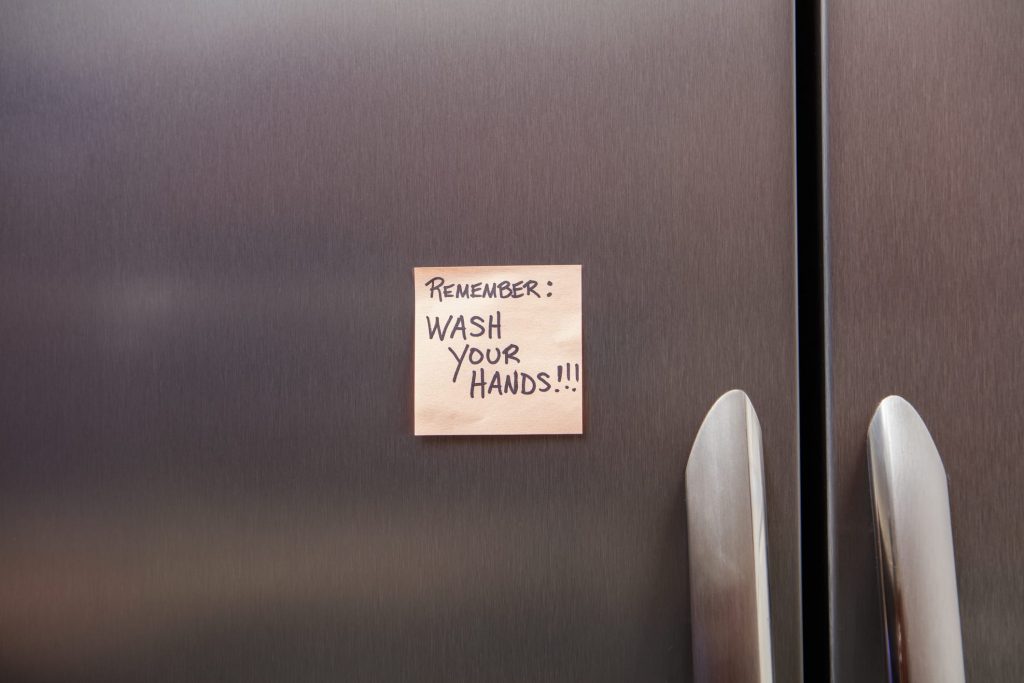
Caring for someone with Alzheimer’s or dementia presents unique challenges. Someone with memory impairment who may already be struggling with hygiene may simply not remember to wash or sanitize their hands, and illnesses like the flu and coronavirus may make cognitive impairment and confusion worse. And while there is no evidence that Alzheimer’s or dementia itself increases the risk for COVID-19, the behaviors that accompany these conditions may increase one’s risk of getting sick. The Alzheimer’s Association recommends that caregivers of someone with dementia use the following tips to best care for their loved ones during this difficult time.
Monitor your loved one’s cognitive functions
One of the signs of a severe case of coronavirus is confusion, and those with Alzheimer’s or dementia sometimes exhibit worsened cognitive impairment when battling an illness like the flu. This can be difficult to detect in someone with dementia and may make it harder to catch a case of coronavirus early on. Pay extra attention to your loved one’s cognitive functioning and memory, and note any sudden changes. If you notice any changes, contact your loved one’s medical provider right away – it may be nothing, or part of normal dementia progression, but it’s certainly better to be extra cautious during these times.
Write reminder notes and place them around the home
Someone with Alzheimer’s or dementia is unlikely to remember to frequently to wash their hands. The Alzheimer’s Association recommends that caregivers who live with their older loved ones write reminder notes and create signs and place them around the home in areas like the bathroom or next to the kitchen sink. The notes should remind the senior to wash their hands and demonstrate proper handwashing techniques. If your loved one struggles to wash their hands, use hand sanitizer or sanitizing wipes between more thorough hand washings.
Plan ahead to avoid any gaps in care or treatment
The Alzheimer’s Association recommends that caregivers plan ahead for their loved one and their care to prevent any worst-case scenarios. As coronavirus spreads, there is a high chance that adult day centers may close or respite may be canceled. If you typically use these services, contact another in-home care agency, family member, or close friend about filling in. You should also make a plan for who will care for your loved one if you become sick and cannot perform your caregiving duties as normal.
Memory care communities are another option for your loved one if you become sick or cannot provide care for some reason. These communities are well equipped to take precautions ensuring that their residents get all the care they need while minimizing their risk of exposure.
Stock up on your loved one’s medications
Caregivers of older adults should be extra careful about social distancing and hygiene to minimize their loved one’s risk of getting sick. The Alzheimer’s Association recommends that caregivers switch from 30-day to 90-day prescriptions of their loved one’s medications to reduce the number of trips you will need to take to the pharmacy throughout this period of social distancing. Talk to your pharmacist or your loved one’s physician about making the switch- most providers will have no problem doing so, and many insurance plans will provide the same amount of coverage as they would for a 30-day supply.
Another way to ensure that your loved ones have all the medications that they need is using prescription delivery services, such as those outlined in this assistedlivingtoday.com guide. Prescription subscription services presort multiple medications into easy-open packages and deliver them to customers’ doors – this can be a great way to minimize exposure, while ensuring that your loved one doesn’t run out of medications if their normal way of getting their meds isn’t feasible.
Coping with Emotional Distress and Isolation
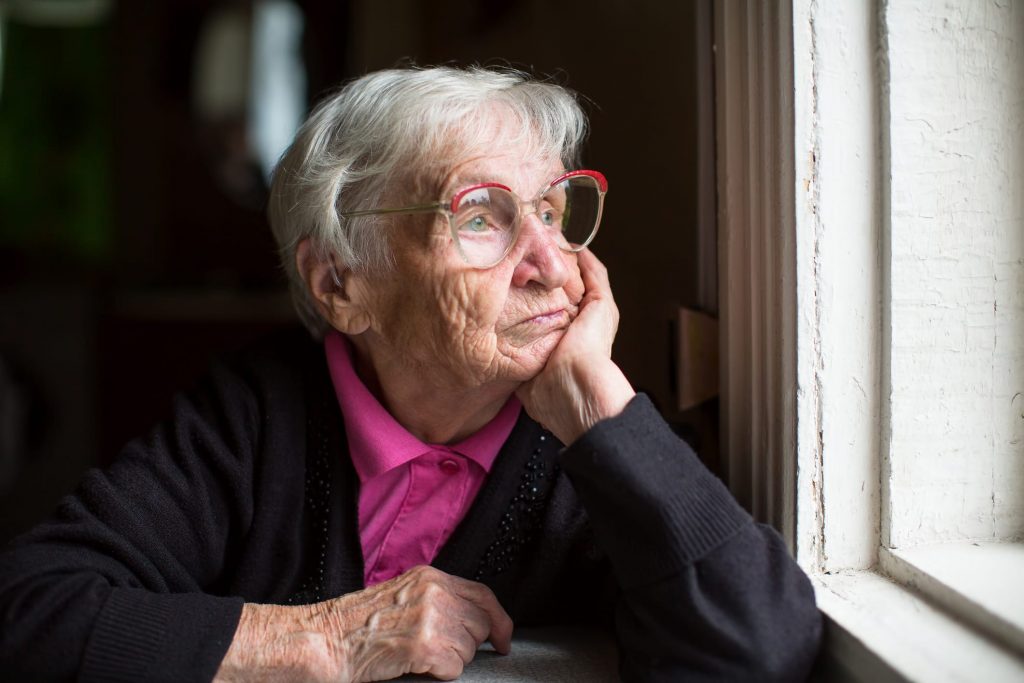
The public at large is being instructed to socially distance themselves from others, and in some cases, entire cities are under “shelter in place” orders. In many cases, residential care communities are not allowing any visitors for the time being. Older adults who live in their own homes or residential care facilities may begin to feel increasingly isolated as their loved ones keep their distance in order to prevent transmitting the virus or any other infection. This isolation and loneliness can begin to wear on one’s mental health.
While you may not be able to physically be with your older loved ones right now, you can use technology to connect with them and make them feel less alone. Consider the following suggestions to continue to keep in contact with your older loved ones and help them fight loneliness during the coronavirus pandemic.
Have nightly family video chat sessions
Apps like FaceTime and Skype have made it easier than ever to stay connected with friends and family no matter the distance. During social distancing, these apps can be a great way to stay in touch with friends and family and almost feel as though you’re together. If your elderly loved one is currently isolated, schedule daily or nightly video chat sessions with the family. One fun way to use video chat is to have a storytime- seniors can read a story while their grandkids settle into bed for the night. You can also do video “dinner parties” and bring the family together, no matter where anyone is physically located, to chat over your meal.
Utilize group streaming options
A group streaming app, such as Netflix Party, is perfect for friends and families who are currently separated. The feature allows groups in several different locations, using several different devices to stream TV shows and movies synchronously. There is a chatroom feature so everyone watching can share their thoughts via message, but you could also simply talk to your loved one on speakerphone while you watch. If you do not have Netflix or do not want to download the app, you can do your own version by simply planning on watching the same show or movie at the same time as your loved one, and talking on the phone while you watch. While it doesn’t quite compare to a group outing to the movie theater, it’s a good way to stay entertained for a few hours and help your loved one feel less alone.
Watch remote concerts and performances
As most events, including concerts and performances, are being postponed due to coronavirus, some artists are taking it upon themselves to offer free concerts via live stream for those who are isolated. One great example is The Metropolitan Opera’s nightly performances, which can be watched live on the company’s website from any device with internet access. Keep an eye on the social media accounts of your loved one’s favorite musical artists, comedians, or other performers to see if they announce any live stream performances.
Coronavirus Resources for More Information
It’s impossible to log online and not see numerous posts and articles about coronavirus. With so many people interested in the topic, plenty of unreliable sources are publishing sensationalized or unfactual information to garner web traffic. As you try to stay informed, be sure you’re getting your information from a trustworthy source. Below, we’ve listed some resources you can turn to in order to learn about coronavirus and stay up-to-date on current protocols and protective measures. We’ve only included resources that are validated by federal and/or state governments.
| Resource | Organization |
| HHS Coronavirus Disease 2019 (COVID-19) Updates | U.S. Department of Health & Human Services |
| Parent and Caretaker Resources and Recommendations for Coronavirus | Washington State Department of Health |
| Coronavirus (COVID-19) Information Hub | The Centers for Disease Control and Prevention |
| Coronavirus Cases and Latest Updates | The Centers for Disease Control and Prevention |
| Coronavirus Educational Videos | The Centers for Disease Control and Prevention |
| Tips for Dementia Caregivers | The Alzheimer’s Association |
| Coronavirus Situation Reports (updated daily) | The World Health Organization |
| Coronavirus Disease (COVID-19) Advice for the Public | The World Health Organization |
| Q&A on Coronaviruses (COVID-19) | The World Health Organization |
| COVID-19 Resources for Senior Centers | The National Council on Aging |




